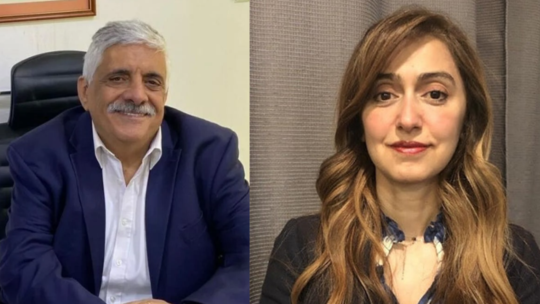Kuttab is a Palestinian-Jordan writer living in Jordan, where he runs the Community Media Network, Radio al-Balad, and the Amman Net news organisation.
Cybercrime police issued an arrest warrant for him following a complaint over an article published in 2019 about a Jordanian-American investor. Daoud Kuttab was arrested at Amman airport on his way back from a trip to the UK.
"I had heard hints from my colleagues that some in the government were not happy with my writings, but I did not expect to be prevented from entering [the country]," Kuttab said to the media.
He was eventually released hours after his detention, but he still faces charges of "spreading fake news" under the cybercrime law.
Jordan's Cybercrime Law, passed in June 2015, has become a recurrent tool for Jordanian authorities to stifle free speech and media freedom amid protests over the financial crisis hitting the country.
Mohammad Ersan, an MEE contributor and editor-in-chief of Radio al-Balad, said Jordanian journalists are "terrified". "We practice self-censorship before publishing anything for fear of the Cybercrime Law, which contains loose phrases that could be used to imprison journalists," Ersan said to local media.
"Any opinion, article or even emoji that the authorities don't like, could land you in court on charges of spreading misleading news or defamation and libel," he added.
On 7 March, Taghreed al-Rishq, a Jordanian journalist, was also detained at Amman airport for nearly 12 hours upon her arrival from Washington for posting a tweet on 13 January criticising a pro-government journalist.
She was released on bail hours later.
IFJ General Secretary Anthony Bellanger said: “Jordan’s constitution enshrines the right to free speech and the freedom of the press, but this cybercrime law is being used against those fundamental rights. We call on the authorities to drop all charges on Taghreed and Daoud and to stop using this cybercrime law to stifle critical voices and independent reporters.”

